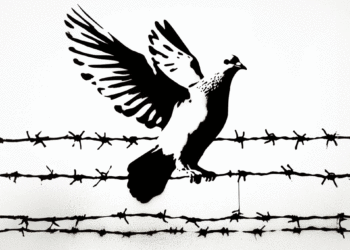In the #MeToo moment, we, as girls and women, learn to assert ourselves, gain confidence and act bravely, and boys and men are taught what is acceptable and what is not
By EMANUELLE WIRTSCHAFTER SIPPY
In Little Women, Louisa May Alcott wrote: “I am not afraid of storms, for I am learning how to sail my ship.” The #MeToo movement has definitely embraced this philosophy —women speaking out honestly, regardless of possible backlash. It is not that we can push our worries aside, but rather it’s a decision to weather the storms that may come from speaking out, because justice is more important.

The fact that women are distressed and often feel unable to report instances of sexual assault is in and of itself a problem. Throughout history, women have coped with these situations by mitigating the severity of what is happening — laughing, flirting, or making it seem like a joke — even though they have often felt violated.
If a woman does not report an instance of sexual harassment or assault, that does not imply her consent. This does not mean the acts were appropriate or that they were her fault. The victim is not to blame for the horror they endured.
We live in a world where many women are hesitant to “make a fuss,” where women have to prove their strength. It’s no wonder that women are fearful about how they will be judged, not wanting to appear weak.
When I characterize the #MeToo moment as a time in which women are “learning how to sail,” I mean to suggest that addressing the issues surrounding sexual harassment and assault requires that we, as girls and women, learn to assert ourselves, gain confidence and act bravely, and that boys and men are taught what is acceptable and what is not. By learning how to sail, we can gain the wisdom and courage to say, “This is wrong, and we will not stand for it.”
Action is emphasized in Judaism. Tradition teaches that when the Jews were given the Torah, they responded, Na’ase V’nishma, We will do and we will listen. Action inspires listening and facilitates understanding. I admire the numerous women who have acted through making public allegations. Unfortunately, they are the minority, and so many transgressions remain unseen.
When the believers of “boys will be boys” make excuses, they model this for the young men of today, who are in turn encouraged to make excuses. As women, we too are responsible, not because of the way we dress or the time elapsed before a report, but because men cannot and will not change unless they are held accountable.
In my first semester of high school, I witnessed many instances of sexual harassment. A senior talked about freshmen girls’ bodies and clothing in front of us in critical, degrading and demeaning ways numerous times. He sent unsolicited and inappropriate pictures. There was unwanted touching, name-calling and general disrespect. The girls would often laugh and act as though this behavior was comedic, but truthfully felt violated. The school never provided guidelines about how students should report or respond to this type of harassment, but when brought to their attention, administrators prepared punishment. However, it is not enough to implement individual consequences, we must institute cultural change.
The Torah teaches “Justice, justice shall you pursue,” which is often thought of in a positive light. But when Deuteronomy employs the word “pursue (tirdof)” it is a reminder that pursuing justice often involves the pursuit of that which is difficult, troubling or dangerous. Tirdof calls to mind that it is often bandits or enemies whom we purse. Sexual harassment and assault are our adversaries, which we must not passively ignore but intentionally fight.
***
Emanuelle Sippy lived in Minneapolis and attended Heilicher Minneapolis Jewish Day School from 2008-2015. She is now a high school freshman in Lexington, Ky., and a youth advocate with Student Voice, a state-wide organization seeking to improve education by placing greater emphasis on the input of students themselves.
(American Jewish World, 2.9.18)



















